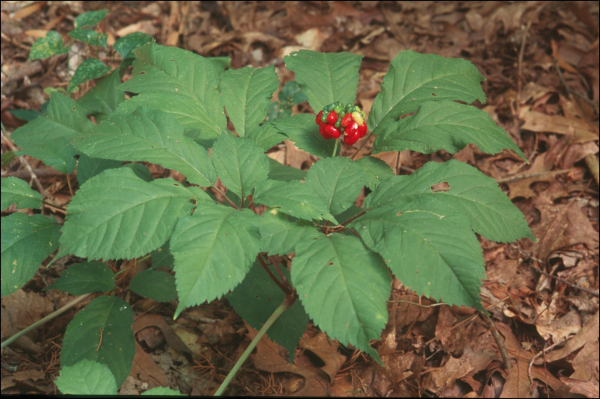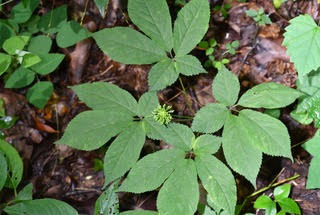Ohio Division of Wildlife Wraps Up Multiyear Ginseng Investigation

COLUMBUS, Ohio – The Ohio Department of Natural Resources (ODNR) Division of Wildlife is concluding a two-year long investigation into illegally harvested and dealt ginseng. The operation involved the illegal trafficking of ginseng in Ohio, West Virginia, Virginia, New York, Kentucky, Pennsylvania, and Indiana. The operation was conducted in coordination with the U.S. Fish and Wildlife Service.
The investigation, which ran from 2018 to 2020, spanned 21 Ohio counties and resulted in 110 defendants being charged with a combined 259 violations. Charges included the illegal harvest of ginseng, falsification or failure to keep ginseng records, illegal purchase of ginseng, and harvest of ginseng without permission. During the investigation, seven individuals were charged for the manufacture, possession, or sale of illicit drugs.
Defendants in the case combined to pay $76,178 in fines and $21,633.05 in court costs, with an additional $20,871.68 in cash being forfeited. Courts ordered a total of 7,986 days of jail time; 2,068 days were served, and the rest was suspended. Those charged with drug-related crimes were ordered to serve 12 to 15 years in prison. Additional penalties included probation, community service, home confinement, suspension of ginseng dealer permits, and suspension of digging ginseng.
The investigation targeted licensed ginseng dealers, unlicensed ginseng dealers, and out of season diggers. Ohio wildlife officers and investigators executed search warrants, cell phone record warrants, and GPS tracking warrants to compile evidence.
The Division of Wildlife thanks all who assisted with this operation, including the U.S. Fish and Wildlife Service, which prosecuted out-of-state ginseng dealers associated with the investigation. The Division of Wildlife also thanks all state and federal prosecuting attorneys who sought justice for the theft of wild ginseng.
American ginseng is a slow-growing perennial herb that is found throughout Ohio in small, scattered populations. It is highly valued for its medicinal properties. Ohio is one of 19 states with a ginseng management program, which allows for the legal export of ginseng. The program allows the state to maintain a sustainable yield of ginseng, so harvesting of the plant is not detrimental to the survival of the species. The Convention on International Trade in Endangered Species (CITES), U.S. Fish and Wildlife Service, and Division of Wildlife guide ginseng harvest and trade regulations in Ohio.
In Ohio, ginseng can only be harvested between September 1 and December 31, annually. Harvest is limited to mature ginseng plants (at least three leaves) and regulations stipulate that harvesters are required to plant the seeds of collected plants where they were found. Ginseng diggers must have written permission to collect ginseng on private and public lands. Visit wildohio.gov to learn more about Ohio’s ginseng management program.
The ODNR Division of Wildlife regulates ginseng harvest and sale in Ohio. A ginseng dealer permit issued by the Division of Wildlife is required to buy ginseng for resale or export, and ginseng must be certified by the Division of Wildlife before it is exported from Ohio. Ohio wildlife officers and investigators have statewide authority to enforce the state’s ginseng harvest and sale laws.
In April, the Division of Wildlife sold ginseng forfeited during this operation and other cases in an auction which raised $51,542 for the state’s Wildlife Diversity Fund, which supports projects for species of greatest conservation need.
Anyone can report a wildlife violation through the Turn-In-A-Poacher (TIP) program. Wildlife violations can be reported anonymously by calling 800-POACHER (762-2437).
The mission of the Division of Wildlife is to conserve and improve fish and wildlife resources and their habitats for sustainable use and appreciation by all. Visit wildohio.gov to find out more.
ODNR ensures a balance between wise use and protection of our natural resources for the benefit of all. Visit the ODNR website at ohiodnr.gov.






